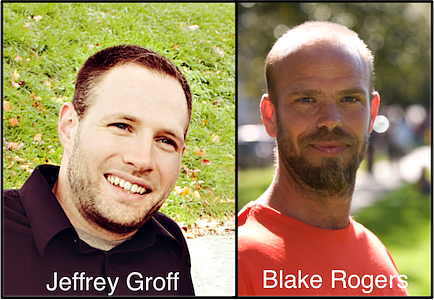
- 23 Oct 2014
We recently set out to learn a little bit more about why participants decide to take our courses and what they hope to learn. We interviewed one participant from each of the courses that are offered this Fall and are pleased to share their thoughts with you.
Jeffrey Groff is a college physics professor in Shepherdstown, West Virginia. He decided to enroll in the Introduction to Complexity course after learning about Complexity Explorer from an e-mail he received from us. Jeff explained that “my research has at times delved into topics that will be covered in the course, but I wanted to learn some tools that undergraduates can use to investigate complexity.” He hopes “to learn new ways to communicate the topic of complexity to my students.” This is Jeff’s first MOOC. He finds the “work-at-your-own-pace-and-on-your-own-schedule format” as a key benefit of on-line education. When asked about how this course might help him achieve his personal or professional goals he explained, “As a professor, I have a personal and professional goal of satisfying my curiosity about diverse topics, and to find new ways to get my students curious about diverse topics. I anticipate that this course will help me do these things.”
Peter Alexander is an architect urban designer from Bristol, UK. He learned about our courses while studying for his master’s degree during which time he, “was fascinated by emerging systems which led me to Santa Fe Institute, where I discovered your Complexity Explorer Project.” Peter decided to enroll in the Nonlinear Dynamics course because he has long been “fascinated by cities” and has “traveled a lot and always wanted to know what makes a city successful or not.” He believed that “nonlinear dynamics and my urban design skills could help (me) sbecome an urban modeler and answer this question.” Peter has previously taken our Introduction to Complexity and Dynamical Systems and Chaos courses and is also enrolled in Mathematics for Complex Systems. He is hopeful that taking this course will help him progress towards his goal of becoming an urban modeler.
Blake Rogers is a software developer based in San Francisco, California. Blake learned about Complexity Explorer while, “reading a Wikipedia page on Boids, which is an artificial intelligence algorithm for swarm behavior, and doing further reading on agents. I’ve read about agents over the years, so I wanted to see what I could pick up about them.” Blake explained that he chose to enroll in the Mathematics for Complex Systems course both to refresh his math skills for the Introduction to Complexity course he is also taking and because “the math might be useful for analyzing software performance, or just thinking critically.” Blake hopes to gain “better math skills, computer science, and professional street cred” from taking this course. These two courses are Blake’s first experience with MOOCs. He likes the flexibility, the free cost, the on-line forum and the support from teaching assistants. When asked how he felt this course might help him meet his personal or professional goals he said he wasn’t sure, but hoped that it might help him, “think more strategically, look good on (his) LinkedIn page, or make something cool as a result.”
Thank you to all three students for sharing their thoughts. We are happy to have you as a part of the Complexity Explorer community.
